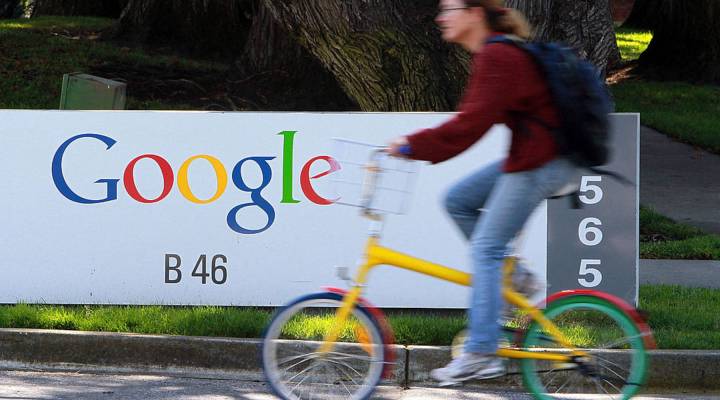
Silicon Valley once sold little more than microchips. How did it become the capital of tech?
Silicon Valley once sold little more than microchips. How did it become the capital of tech?

When we talk about the tech industry, we’re often looking to the future. But what can Silicon Valley’s past tell us about where it’s headed? That’s the focus of Leslie Berlin’s new book, “Troublemakers: Silicon Valley’s Coming of Age.” In it, she dives into a turning point in tech that started around the 1970s and created the Silicon Valley that we know today. She talked with Marketplace Tech host Molly Wood about the Valley’s founding figures and how its farmland quickly turned into a place where billions of dollars are made. Below is an edited excerpt of their conversation.
Molly Wood: Why do you call the book “Troublemakers”?
Leslie Berlin: Well, this book is about people who kind of had to forge their own way. They saw problems that they wanted to solve that they couldn’t do according to the way things were done at the time in the 1970s. They weren’t setting out to cause trouble or make problems. To do what they needed to do, they had to find their own way to do it.
| What a $400 juicer says about Silicon Valley |
| Looking back at the birth of the iPhone, 10 years later |
Wood: The book covers several periods of time, starting in 1969 and going until 1984. Why did you choose that period in particular?
Berlin: The best way I can describe it is — you know how you think about the Beatles and you look at how their first album comes out in 1963 and they’re still covering Little Richard and then by 1970 they’ve broken up. But in those seven years they’ve done this incredible, innovative work that has completely changed not just music, but the entire culture around them. And I really feel like this period from ’69 to ’84 is the same thing happening in technology. I mean before Silicon Valley was just this town that did one thing which was sell microchips. And by the other end of it you have video games and personal computers inside people’s houses. This is the beginning of when you start to see the tight relationships between Silicon Valley and Washington coming up. You go from Silicon Valley being this unknown place to sort of the home of, essentially, entrepreneurial heroes, I mean where you have President Reagan calling them the pioneers of tomorrow.
Wood: Let’s talk about learning from history for a minute. The U.S. is in the middle of a conversation about how maybe some of these current tech companies are too big. As you look at this national conversation about Facebook and Google and Amazon, what does the history that you have just gotten done writing about tell you about what might happen to them?
Berlin: Well there are a couple things. Something that struck me again and again is how taken by surprise people were by what their ideas turned into. And I think there’s a way in which these technologies have been more successful than anyone ever imagined and it’s sort of outrun the planning for them a little bit. All of that said, I think it’s important that we be having these conversations. Technology is in our lives in a way it’s never been before. And it’s sort of an intimacy that I think has been wonderful in the connections that we’ve been able to make, and it’s also very frightening to a lot of people. And I think that’s a conversation we have to be having.
There’s a lot happening in the world. Through it all, Marketplace is here for you.
You rely on Marketplace to break down the world’s events and tell you how it affects you in a fact-based, approachable way. We rely on your financial support to keep making that possible.
Your donation today powers the independent journalism that you rely on. For just $5/month, you can help sustain Marketplace so we can keep reporting on the things that matter to you.


















